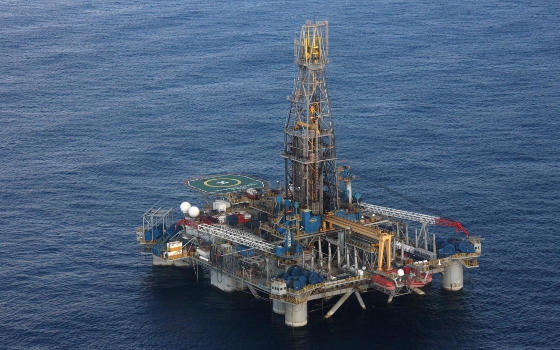As Lebanon prepared to invite oil companies to pre-qualify for bidding on upcoming tenders, a 3-D survey showed that gas reserves off its southern coast may be larger than previously thought, a senior executive at energy company Spectrum said.
“We have re-assessed the data we collected from the 3-D survey off the southern part of Lebanese coast and we found out that the size of the hydrocarbon reserves was much bigger than we anticipated,” David Rowlands, the CEO of Spectrum ASA of Spectrum Geo, told The Daily Star. “This means the gas reserves buried under the sea are quite significant.”
Spectrum, in collaboration with Dolphin, concluded the first 3-D survey off Lebanon’s coast late last year, covering 3,000 square meters of its southern waters.
Rowlands said in December that the initial findings showed Lebanon’s southern waters had 25 trillion cubic feet of natural gas.
Though the latest analysis of the 3-D data suggests that the reserves are actually larger, Rowlands cautioned that it was too early to determine their exact size, adding that the firms that win the drilling contracts will be able to provide better estimates.
Rowlands has been holding regular meetings with international oil firms interested in bidding for gas exploration rights in Lebanon.
The CEO said he planned to visit Dubai to brief some firms about Spectrum’s findings in Lebanon.
“The list of companies which want to bid for the pre-qualification round is getting bigger all the time,” he added.
Lebanon recently formed a Petroleum Administration to oversee the pre-qualification and bidding processes. The six-member Petroleum Administration is tasked with preparing all the technical and legal work before negotiating with the oil companies.
The Petroleum Administration will not prepare the specifications or conditions for the bidding process until the Cabinet approves the criteria for the pre-qualification round.
The actual gas exploration off the coast is expected start in 2017.
The oil and gas finds have relieved investors, bankers and economists who were deeply concerned about the economic recession, fall in foreign direct investment and huge drop in the number of tourists.
Oil experts argue that the value of gas off the Lebanese coast would surge in the coming few years as the world grows more reliant on the commodity because it is cheaper than oil and more environmentally friendly.
The Daily Star
3 February

























































